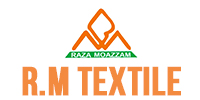Since 1992, R.M textile giving services as a third party independent inspection in between Buyers & Sellers for ensuring that ordered products meet the required quality standards and specifications as per clients. We have team consists on textile Graduate members and setup of Quality assurance departments with main objective is to ensure that the end product is of high quality and meets the customer’s expectations. Quality assurance involves various processes, including testing, inspection, and verification of the products, compliance to ensure customer satisfactions.
The quality assurance process in textiles involves several steps, including: visual, physical, laboratory, chemical examination.
Raw Material Inspection: This involves the inspection of the raw materials used in the production of Yarn, such as raw cotton, polyester fiber, and other fibers for moisture content, fiber content, Staple length, Strength, MIC, UR, Grade, Lot, Color, Trash and other characteristics that may affect the quality of the yarn.
Cotton Yarn is to visually inspect the yarn for any defects or irregularities at ring stage, auto cone, & packing stage. This includes checking for knots, slubs, unevenness, and variations in color or thickness, tensile strength, elongation, thin, thick, neps ,TM, TPI, RKM, Hairiness, yarn count and share uster tester, tensile strength reports with clients for their review.
Fabric to Finished products is a visual examination of the Greig fabric, Bleached white ,Dyed fabrics, printed fabrics ,bed linens, towels, curtains, work wear, upholstery and to finished Garments .. This includes inspect goods according to ISO method or 4 points inspection system and any other specific method assign to check products for defects such as holes, tears, stains, discoloration, or any other irregularities that may affect the quality and physical testing determine its strength, durability, and other properties. This includes testing for tensile strength, elongation, tear strength, Yarn count, fabrics density Ends, Picks, width , colorfastness, shrinkage, pilling, seam strength, and overall inspect weaving stage to final product examination to ensuring that the end product meets the required specifications.
Once the inspection is complete, a detailed report is prepared, outlining the results of the visual inspection, physical testing, and laboratory analysis. The report includes information about any defects or irregularities found, as well as recommendations for addressing these issues are sent to clients for their review before ex-mill of every consignment.
Packaging and Shipping: Once the final product has passed all quality assurance tests, it is packaged and shipped to the customer, during this process, the product is inspected to ensure that it is packaged correctly and that it meets the required shipping standards to avoid any loading and un-loading damages.
In brief, the results of the inspection are used to identify any defects or issues that need to be addressed before the products are shipped to customers. By conducting regular inspections, manufacturers and retailers can ensure that their products meet the required quality standards and provide customers with high-quality and long-lasting products. The inspection process involves visual inspection, physical testing, laboratory analysis, measurement, sampling, and reporting that helps to clients to make sure that the products meet the required quality standards and specifications.
We keeps our clients up-to-date about market behaviors, latest markets technique, future challenges, so they can get maximum benefits.
